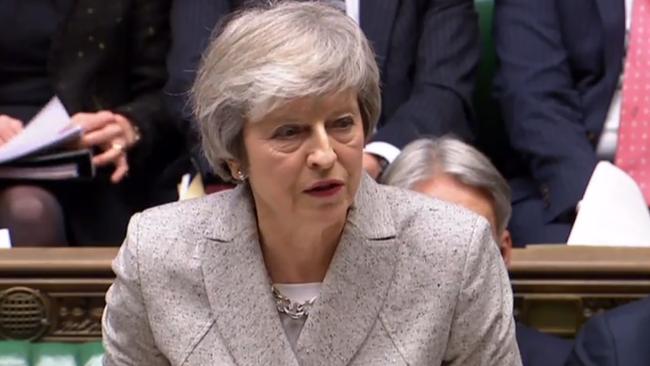Brexit deal proposed by Theresa May hits snag over fishing rights, Ireland ‘backstop’
Theresa May’s contentious 585-page withdrawal bill could be sunk amid anger over fishing rights off the coast of Scotland.

A 24-page political declaration setting out the future relationship between the United Kingdom and the European Union hit its first roadblock this morning, just hours after its release.
UK politicians, including those from the Conservative party, roundly condemned the document that had been negotiated between British Prime Minister Theresa May and the European Commission chief Jean Claude Juncker over the past two days.
Westminster intensified its complaints about future fishing rights off Scotland and the detested Ireland backstop if a future trading deal cannot be negotiated, and expressed scepticism about the aspiration context of the future document.
Mrs May acknowledged the potential for tensions and drama in the next 72 hours before the document, along with the much heftier 585-page Withdrawal Bill, is presented to the European Summit to be signed off by them on Sunday.
Mrs May said: “This deal is within our grasp in the crucial 72 hours ahead and I will do everything to bring it to the British people”.
European countries are expected to have their own gripes about aspects of the deal.
But the document appeared to galvanise even further domestic opposition to the Brexit bill, which goes before the British parliament in mid-December.
Labour leader Jeremy Corbyn said the document was “26 pages of waffle” and “would blindfold Brexit as we all feared’’. He said the only certainty drawn from the document was that the transition period would be extended or else there will be a backstop and no exit.
“It represents the worst of all worlds with no certainty to the future, no change to the (withdrawal) agreement and the backstop will create a new regulatory border in the Irish Sea.”
Mr Corbyn said the section on fishing in the document sounded as if the common fisheries policy would be replaced by a new common fisheries policy.
Just minutes after Mrs May told the parliament that the deal rejected a link between access to “our waters” and access to markets, Sabine Weyand, the deputy to Brexit negotiator Michel Barnier, tweeted that the EU-UK fisheries agreement was needed to cover both access to waters and market access.
Ian Blackford, the leader of the Scottish Conservatives, said the rights of Scottish fishermen have been discarded like fish and said it would be impossible for vote for ‘’the sell-out’’.
Former foreign secretary Boris Johnson said the hard reality was the deal gives the EU a continuing veto of power over the UK to do free trade deals and doesn’t give the UK back control of its laws.
“We should junk the backstop upon which the future economic partnership is to be based and which makes a complete nonsense of Brexit,’’ he said.
But Mrs May insisted the future relationship declaration “ends free movement and ends sending vast sums of money to the EU and enables us to pursue independent trade deals’’.
Sir Bill Cash the chair of the European scrutiny committee, said the document was “self-contradictory” because the European Court of Justice would still have a role and there will not be complete independence for Britain.
Dominic Grieve said the backstop would create a constitutional anomaly where the EU is the legal guarantor of an international treaty — the Good Friday agreement — to which the UK is signed.
The future relationship agreement talks about ending free movement, but allows for the UK and the EU to decide whether to have maximum regulatory alignment or maximum independence. But the document downgrades frictionless trade to “the parties envisage having a trading relationship on goods that is close as possible with a vie to facilitating the ease of legitimate trade.’’




